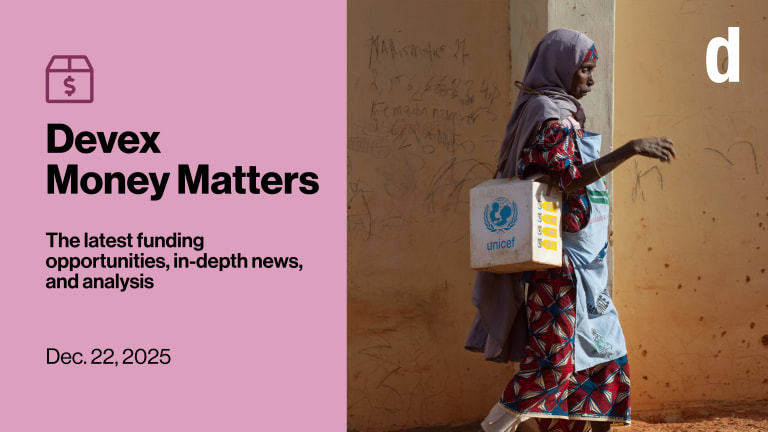
The Soros Economic Development Fund and the Bill & Melinda Gates Foundation announced Monday that they had banded together with a group of investors to buy a U.K.-based diagnostics company with the aim of manufacturing more tests for COVID-19 as well as tropical diseases prevalent in Africa, Asia, and Latin America.
The newly-formed consortium will buy Mologic Ltd, a lateral flow and rapid diagnostic technologies manufacturer, as part of its plan to expand access to “affordable state-of-the-art medical technology” for COVID-19 as well as tropical diseases such as bilharzia, dengue, and river blindness.
Mologic was founded in 2003 by Mark Davis and his father, Paul Davis, one of the inventors of the ClearBlue home pregnancy test. The for-profit company will be transformed into Global Access Health — a social enterprise that will reinvest its profits into addressing “gaps in the provision of global diagnostics in low-income communities and regions that profit-focused business has failed to address,” according to the consortium.
The £30 million ($41 million) deal is being spearheaded by the Soros Economic Development Fund, which is the impact investment arm of the Open Society Foundations.
“What I hope will happen is we will have a new period of focusing on research and development.”
— Joe Fitchett, medical director, Mologic LtdSean Hinton, CEO at the Soros fund, said Global Access Health will help tackle “fundamental inequities in global public health” that have been further exposed during the pandemic by providing access to low-price diagnostic technologies. The initiative comes as COVID-19 cases continue to surge in several African nations and around the world.
In a statement, Hinton said the “unique transaction” would bring philanthropic funds and investors together with “a skilled and visionary management team” to enable “a cutting edge commercial business to focus all its resources on solving one of the world’s most pressing public health issues.”
Under the deal, Mologic will merge with its sister non-profit Global Access Diagnostics, which Mologic previously established with support from the Gates Foundation, the Soros fund, and the United Kingdom’s Department for International Development.
“Mologic’s transition into a social enterprise is a deliberate, logical, and natural step for a company focused on delivering affordable diagnostics and biotechnology to places that have been left underserved by the relentless pursuit of profiteering,” Mark Davis, CEO at Mologic, wrote in a statement.
The challenges countries face in accessing COVID-19 diagnostics, treatment
While there are challenges in supply, health and aid officials argue it’s not the only barrier to access.
Mologic had already scaled up its manufacturing capacity during the pandemic from about 4 million diagnostic tests for different diseases per year in January 2020 to 200-250 million tests currently, Joe Fitchett, medical director at Mologic, told Devex.
As Global Access Health, the company can continue to focus on public health rather than commercial viability, he said. Mologic is no longer at risk of being acquired by a larger profit-driven company or beholden to shareholders, according to Fitchett.
He added that he believed this new model could be applied to other areas such as new drugs and therapeutics, medical oxygen, and vaccines for COVID-19 and other illnesses.
Instead of prioritizing profits, “what I hope will happen is we will have a new period of focusing on research and development,” he said.
The looming question now is whether this model will lead to the development of more efficient diagnostics, said David Bell, a global health technologies consultant.
“I think most people would be interested and hopeful to see how it plays out,” he said, adding that “something I’ve seen in diagnostics development is where it is purely philanthropically funded, you can be far less efficient and focused.”
A profit-based model forces companies to produce a useful diagnostic to survive, said Bell, who currently advises a diagnostics company with a sickle cell disease test that has received regulatory approval in India and Ghana.
Additionally, Bell said he would like to see philanthropists considering this type of venture diagnostics take into account the needs of the regions they plan to serve and not just their own priorities. It should all “feed into a system that is really based on the evidence of what is needed,” which might include better medical treatments and improved nutrition, he said.
“The danger is that you go down the road of almost a medical dictatorship or medical colonialism rather than having it market-driven from the people who really need it,” he said.
Update, July 20, 2021: This article has been updated with comments from David Bell.








